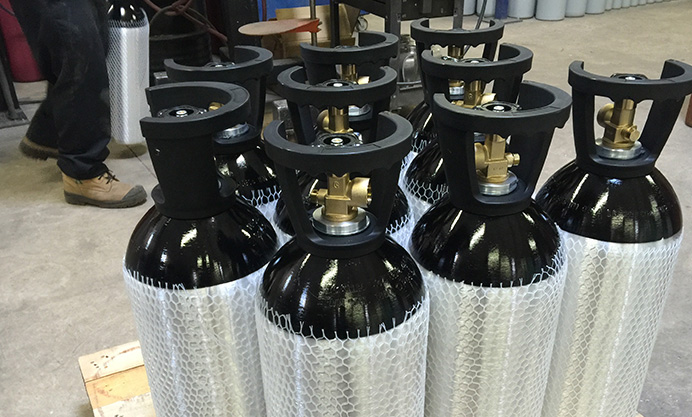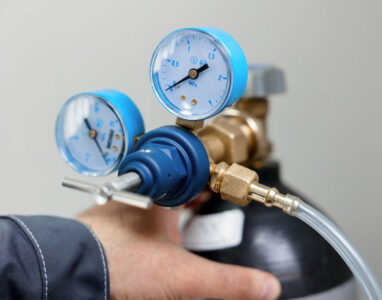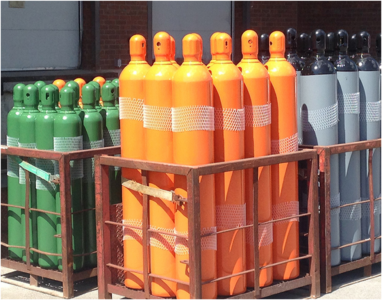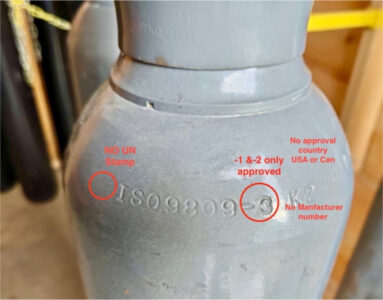Gas cylinders are essential for many industries, from welding to medical applications. However, like any equipment, they can develop problems over time. Knowing the common issues in gas cylinders and how to spot them is essential for safety. This blog will help you identify these defects and tell you when to call a professional for testing or repair.
Common Cylinder Defects
Rust: Rust, or corrosion, as it is also known, can look like brown or red spots on the tank’s surface. This is more likely to happen when the tank is left in a wet environment. There are several valid reasons for this. Distilled water’s acidity will cause chemical reactions on the outside of the tank, particularly in areas where the tank was welded together.
Dings and Dents: Always check the cylinder for dings or dents, especially around the neck and valve areas. Once a cylinder’s integrity is compromised, it can become a greater risk for leakage.
Cracks: Small cracks may be difficult to detect. Look closely for lines or splits in the metal, mainly down near the base and around the edges of the welds. Cracks can cause severe leaks.
Leaking Valve: It may leak if you smell gas or hear a hissing noise next to the cylinder valve. Gas leaks are not safe and can cause a fire or explosion.
Inadequate Labeling: Make sure the cylinder is marked with labels showing what kind of gas it contains and safety data about it. If the marking is nonexistent or unreadable, it can result in hazardous wrong usage.
Overfilled Cylinders: A cylinder may be overfilled if it appears unusually heavy or if the gas pressure inside it is exceptionally high—overfilling results in increased pressure and a greater risk of rupture or leakage.
When to Call a Professional
If you notice any of the defects mentioned above, it’s essential to take action. Here are some guidelines on when to call a professional:
If You See Rust or Corrosion, even minor rust can indicate a bigger problem. A professional can assess the severity and advise whether the cylinder can be repaired or needs to be replaced.
For Dents and Dings: If you find any significant dents, especially deep or around the neck, it’s best to consult a professional.
If You Spot Cracks: Cracks in a cylinder are serious. Always call a professional if you suspect there are any cracks.
For Leaks: If you smell gas or hear a hissing sound, evacuate the area immediately and call a professional. This situation is urgent.
If Labels Are Missing or Unclear: A professional can help ensure the cylinder is properly labeled and compliant with safety regulations.
For Overfilled Cylinders: Don’t attempt to release gas yourself if you suspect overfilling. Contact a professional to handle the situation safely.
Regularly inspecting your gas cylinders for these common defects is crucial for maintaining safety. If you notice any issues, don’t hesitate to call a professional.







